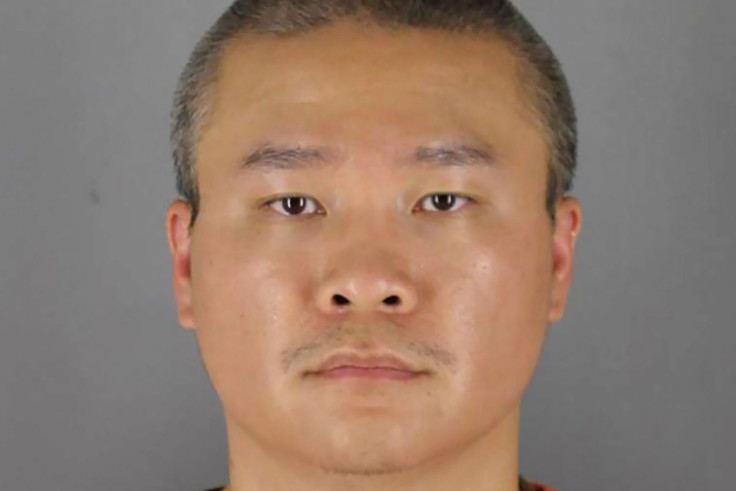Former Minneapolis Police Officer Describes Rough Upbringing At Trial For Floyd Arrest

Tou Thao, one of the three former Minneapolis police officers on trial charged with violating George Floyd's civil rights, said he was inspired to join the police force while growing up in a poor refugee family as he took the stand in his own defense on Tuesday.
Thao, 36, is on trial in the U.S. District Court in St. Paul alongside J. Alexander Kueng and Thomas Lane, accused of violating the 46-year-old Black man's right to receive medical care as he lay dying under the knee of their former colleague, Derek Chauvin, during the arrest on May 25, 2020. Cellphone video of the arrest led to protests against racism and police brutality in cities around the world.
Questioned by his lawyer Robert Paule, Thao said he was first inspired to become a police officer when, as a child, he helped Minneapolis police officers arrest his abusive father.
"I think they were the two most peaceful days of my childhood," Thao testified, on the verge of tears as he described the immediate aftermath of the arrest. His testimony marks the first extensive comment on Floyd's murder by any of the four officers involved in the arrest.
He told the jury his parents fled to the United States from Laos, refugees belonging to the Hmong ethnic group. He was born in St. Paul, the city neighboring Minneapolis, the third of seven siblings whose parents could afford to feed them only one meal a day.
He said his father was strict, and recalled an occasion when he threatened to beat Thao with an electrical extension cord. Thao's mother tried to intervene, whereupon Thao's father grabbed a handgun from his bedroom and held it to their heads.
Mother and son fled to Thao's aunt's house nearby and called the police, and Thao returned with officers to the house to open the front door so they could arrest his father, Thao testified.
Federal prosecutors unsuccessfully objected to some of the biographical questions asked by Thao's lawyer, but Judge Paul Magnuson allowed the questions, disagreeing that they were irrelevant.
Thao, who can expect to be cross-examined later by prosecutors, can be seen on videos stood near Floyd while Chauvin kneels on the handcuffed Floyd's neck for more than nine minutes in an arrest outside a grocery store where Floyd was accused of using a fake $20 bill.
Thao, who had served about eight years in the Minneapolis Police Department, was focused on keeping horrified onlookers on the sidewalk as they screamed at officers to get off Floyd and check his pulse.
His lawyer has said that Thao did not breach Floyd's rights in part because he suggested the officers use a restraint device known as a hobble on Floyd, which would have entailed rolling him on his side, making it easier for him to breathe.
Chauvin, who is white, was found guilty in a separate state trial last year of murdering Floyd. He did not testify. He was also charged by federal officers of violating Floyd's civil rights, and changed his plea to guilty in December.
The two other officers, Lane and Kueng, have also said they plan to testify in their own defense. Thao, Lane and Kueng also face a separate state trial in June on charges they aided and abetted Floyd's murder.
© Copyright Thomson Reuters {{Year}}. All rights reserved.





















